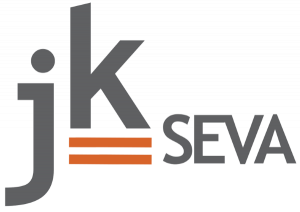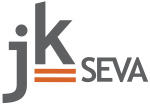Sustainable Healthcare Workforce Trends in the Face of Uncertainty
Description Learn more about workforce trends for healthcare workers in the face on uncertainty and the recent pandemic. Take advantage of these trends so you can adapt to uncertainties for sustainable healthcare operations.
With new discoveries being made in terms of the COVID-19 pandemic, healthcare workforces are being consistently challenged and forced to adapt quickly in the wake of latest developments. The measures your organization takes in order to empower healthcare workers and keep them safe have a direct impact on healthcare professional loyalty, proactivity and commitment. Let’s take a look at some healthcare workforce trends that are likely to stand the test of time.
- Harness Modern Technology
Unmapped territory can always benefit from leveraging technology to assist healthcare workers. Automation tools can help relieve employees from a number of robot designatable tasks, giving them more free time to engage in higher value tasks. Speed of operational functions improves when you add an element of automation through modern Workforce Management (WFM) Solutions.
This technology can help your organization place more importance on the people who are ultimately key to sustained healthcare. With more technology to offset a great deal of repetitive and administrative burdens you can streamline and optimize processes to make your employees feel like their best interests are being addressed. Create convenient channels for them to operate within in order to minimize medical and physical risks that they may face.
- Cope with Fatigue and Burnout
It goes without saying that those involved in the healthcare industry by their very nature put the best interest of their patients above their own. Keeping this in mind, consider how your organization can support your healthcare workers to cope with fatigue and burnout. 60% of nurses deal with excessive workloads and an inability to take breaks during work.
This can be tackled by giving them more control over their schedules and how they manage patient care. More than 60% of them agreed that having flexible timings could give them better work/life balance.
WFM solutions with scheduling applications that are automated can enable efficient scheduling, so no one feels overworked. Nurses can swap shifts and choose slots according to their preferences. This ensures that staff is available around-the-clock, but everyone is well-rested. Making sure that your nurses and other caregivers are not fatigued is critical to ensuring that they can care for patients better since vigilance is a key skill while administering medical care. The overall quality provided by your healthcare organization will increase dramatically when you prioritize the health of your operating staff.
- Guarantee First Responder Mental Well-being
In any crisis it becomes even more important for an employer to guarantee his employees financial stability. Giving your staff the peace of mind they need with regards to money is critical if they are to continue performing life-risking day to day duties. While doctors are well-paid sometimes nurses, assistants, receptionists and other clerks may be earning minimum wage. In America where a majority of those working such jobs live paycheck to paycheck, a number of healthcare establishments are offering no cost financial wellness benefits and direct access to earnings.
- Mobile Accessibility
In light of COVID-19, management at hospitals have provided pop up medical camps in convention centers and car parks. Reallocating staff in situations where system facilities may not be easily available requires mobile applications for a number of functions. Someone who is in charge of accounting may one day be assigned to the reception, or a cardiologist may be delegated to work on a remote COVID-19 unit.
This necessitates remotely accessible applications that can log activities over time providing some semblance of a record for hospitals to keep track of when reallocating healthcare workers. Other than monitoring activity, these apps can function as a record of punch-in and punch-out times as well as make notifications available to everyone. Shift swapping is another feature that can be incorporated into a mobile application facilitating smoother operations.
In case your healthcare organization would like to improve scheduling and WFM of healthcare workers, JK Seva would be glad to help. We offer a wide range of custom solutions tailored to fit your exact requirements. We have expertise in upgrades, implementations, training, custom solutions and software development. Our customer-centric approach supports you every step of the way. Leverage our capabilities for a significant advantage. Reach out to us at JK Seva to find out more.
Subscribe to our Newsletter
We do not share your data with anybody, and only use it for its intended purpose.





